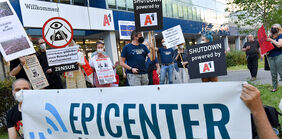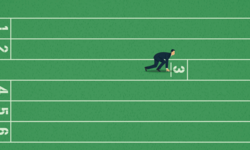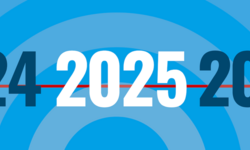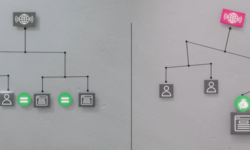
NGO demands disclosure of A1 Telekom Austria Group’s entanglements in Belarus
The civil rights NGO epicenter.works protested in front of the A1 Telekom Austria Group’s building yesterday to raise awareness of the involvement of the partially state-owned company in the Internet shutdowns in Belarus that unfolded around the controversial election of the long-term dictator Lukaschenka. The protest was accompanied by attacks by the company against the non-profit NGO.
In their open letter, A1 Telekom Austria Group claims they have merely slowed down Internet speeds. In the first discussions with A1 after the unfolding Internet shutdowns in Belarus, the company claimed that all measures had happened completely outside of their networks. However, as measurements within the network of A1 Belarus have shown in the meantime, the company has actively participated in blocking certain opposition and critical media websites. With a wide variety of public sources and network measurements, we were able to classify what was happening, together with professor Kavé Salamatian from the University of Savoie:
"The data we found indicates active measures by the Belarus government, which are a combination of changes to the routing structure - how data flows through the network - and active interception via Deep Packet Inspection (DPI). These are very sophisticated methods that put Belarus on a short list of countries that can exercise fine granular control over the internet connection of their citizens. This structure has been in place since A1 joined the Belarusian market, which raises questions why a company from an EU country surrenders control of their network to such a government. It must have been clear from the start to A1 that the Belarusian government would do what it did. The questions that need to be answered now are: who has provided the DPI equipment in the network of A1? Is A1 in control of the DPI equipment in their network? What are the government orders that A1 received from the Belarusian government with regards to internet blocking and surveillance measures targeted at their customers?", so Professor Salamatian.
It is clear what has to happen now: A1 finally has to throw light on the depth of their involvements with the Belarus government. For that matter, the blocking orders and the requests for information have to be published. A1 has to clarify which measures they have implemented since the start of the democratic protests, including whether data of protesters or members of the opposition were diverted. Should the company not be willing to do this bare minimum, it is up to the customers of A1 to make a decision here in Austria. Even a competitor of A1 in Austria has actively pulled out of markets that do not follow constitutional principles. Other telecom providers have critically reflected on their role and, after a Human Rights Impact Assessment, concluded to withdraw from markets such as Nepal, Kazakhstan, Uzbekistan, Azerbaijan, Georgia, Moldova and Tajikistan.
We also have to raise the question of Austria’s responsibility as a whole in this crisis. The republic holds 28% of A1 Telekom Austria Group and thereby, via the federal public holding ÖBAG, profits from the Belarus-sourced earnings. Austria belongs to some of the biggest investors in Belarus and domestic companies like Raiffeisen, Vienna Insurance Group or Kapsch have it in their hands to put pressure on the class of people that keep Lukaschenka in power. In the UK, British companies are already under pressure because of their involvements in Belarus. Even though Austrian chancellor Kurz has recently spoken out in favor of human rights in Belarus, Austria keeps the breaks on against further economic sanctions in the Council of the EU.
We demand disclosure of A1’s involvements with Belarus and a clear statement from all Austrian businesses to pull out of Belarus if the regime will not allow free elections and continues to keep political prisoners captive. We hope that today’s protest is the beginning of a public debate that is long overdue.
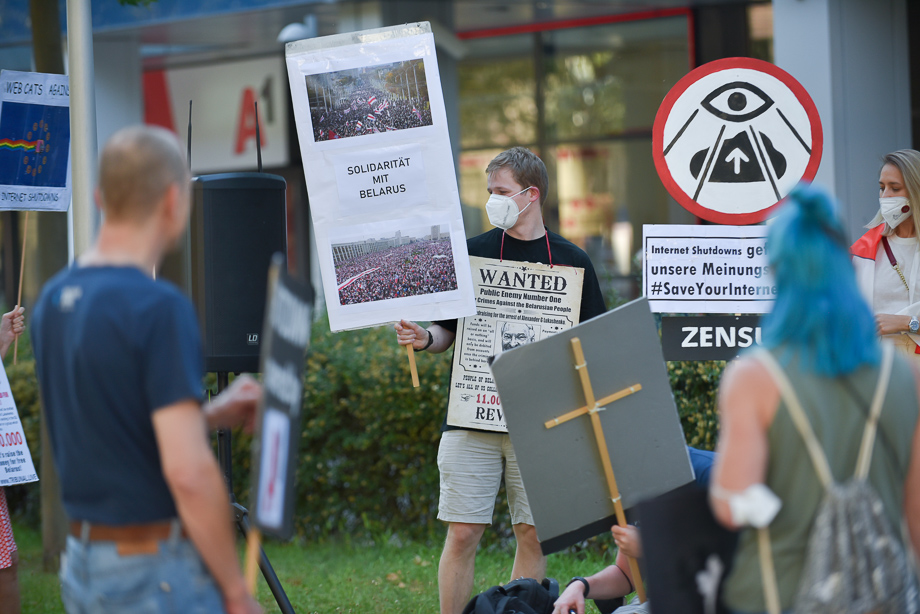
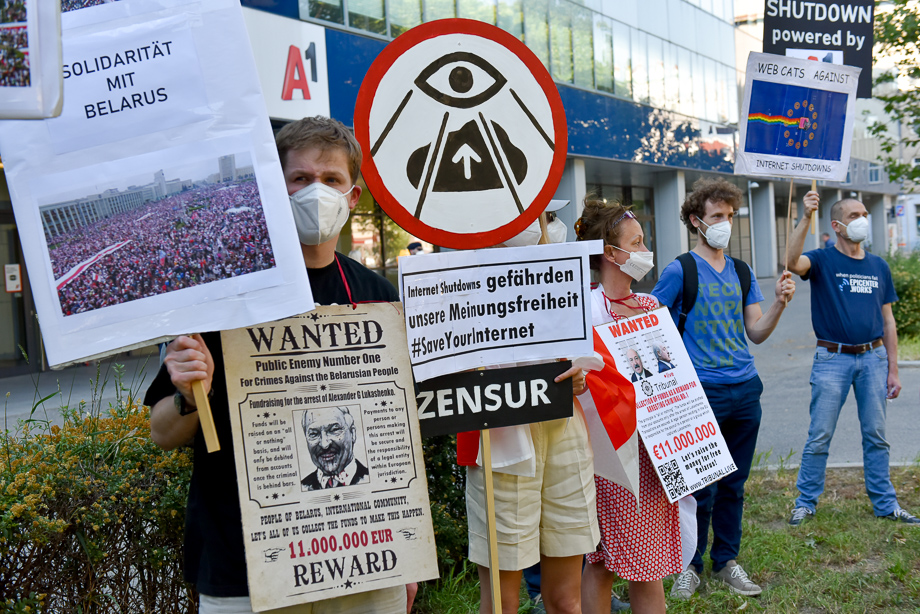
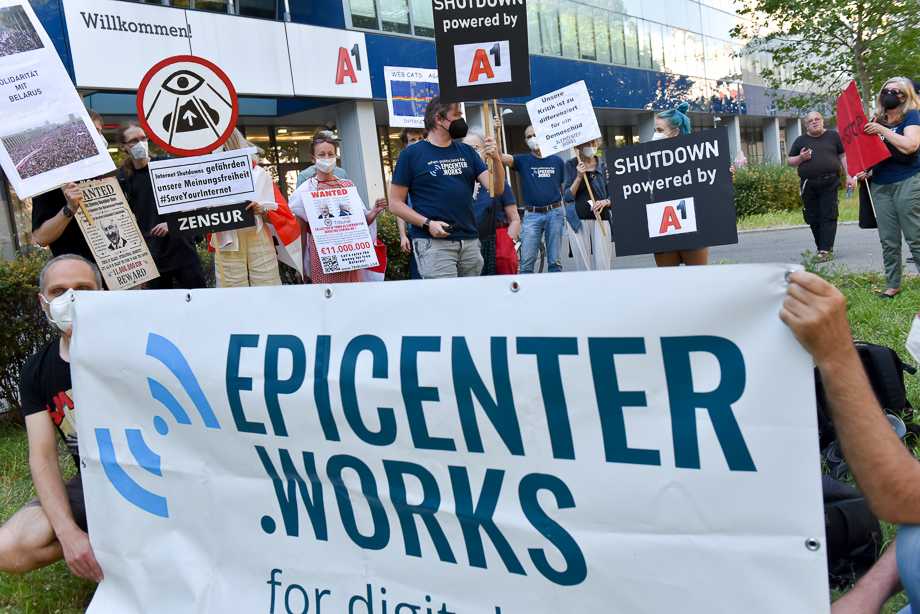
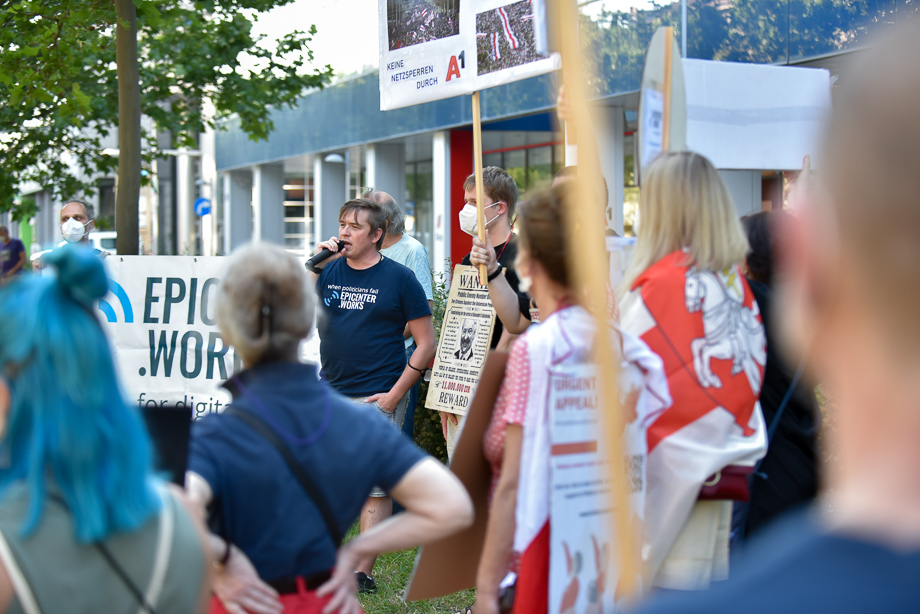
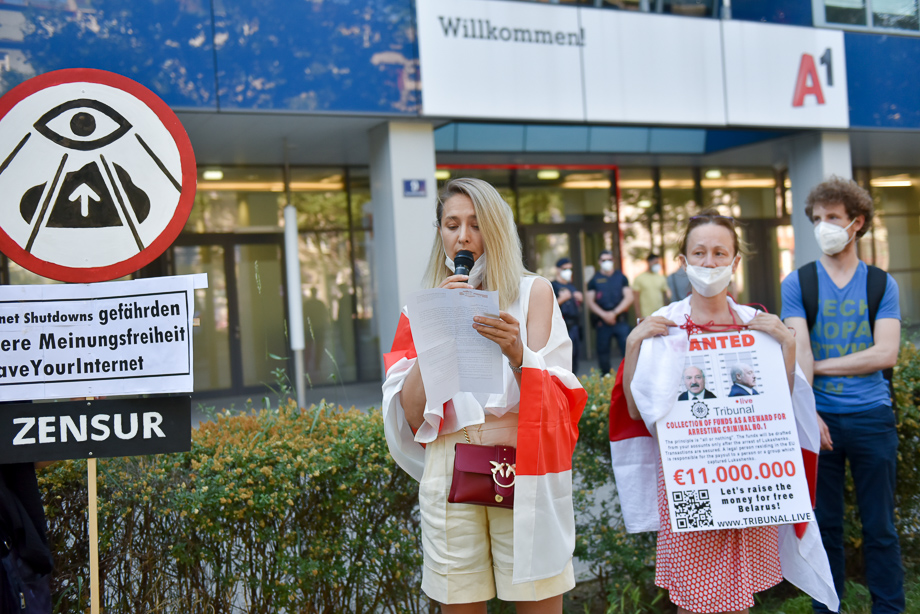
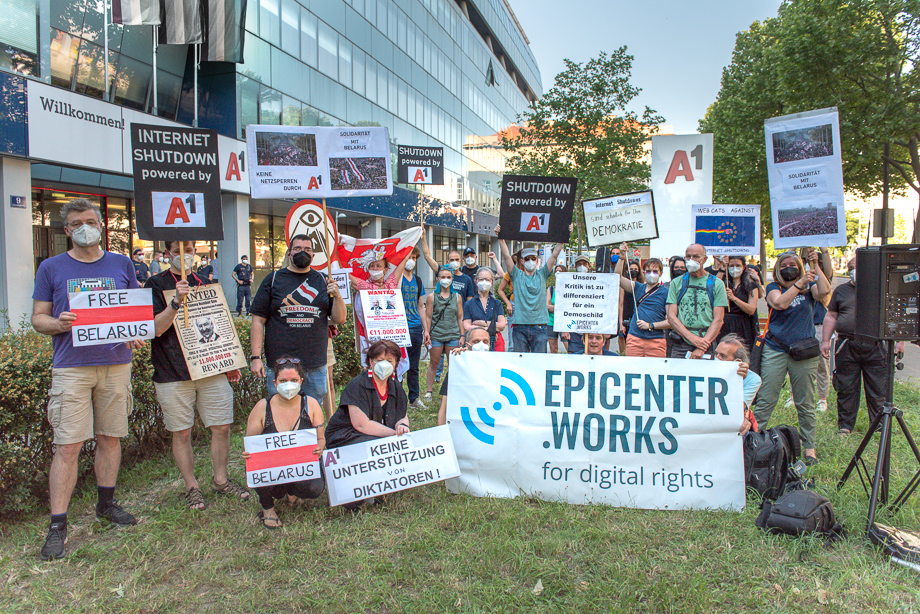
© CC BY 4.0 epicenter.works/Rizar.photo
Since you're here
… we have a small favour to ask. When governments constantly demand new surveillance measures, collect more and more data about us, or when corporations increase their profits at our expense, we start campaigns, write analyses or demand our rights in the courts. For all of this we need your support. Help us form a strong voice for civil society!
Donate Now!
